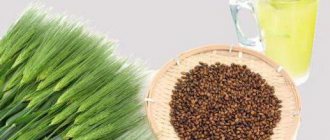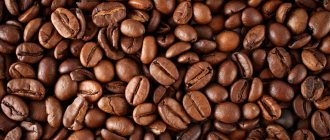How we underestimate the harm of coffee
The whole world drinks coffee.
More precisely, 2 billion people in the world drink it “black”, with milk, cream, ice cream and fruit juices, adding a variety of spices: cloves, cinnamon, cardamom and even salt and black pepper. The wide spread of coffee as a popular drink began in Vienna in 1683 and is associated with the name of the Ukrainian nobleman and Cossack Yuri-Franz Kulchitsky. A couple of years later, the first coffee shop was opened in Paris, and soon Europe was swept by a real coffee boom. In Russia, the custom of drinking coffee was introduced by Peter I, and in 1899, Swiss chemist Max Morgenthaler created instant coffee. Instant coffee came into use in the 40s of the XX century.
The cult of this drink is created for a reason. It is not only the profits of European companies that create conditions where you can drink this completely unhealthy drink at every step.
I saw an advertisement for it in Greenland, at the foot of the glacier. I have seen it advertised on the shores of South America, where the waters of Cape Horn lap against a rocky shore. It is consumed by nomads in the Sinai Desert and residents of remote villages in Tibet and China. Russia consumes millions of liters of it annually. You can see his advertisements on billboards throughout North America: from the Atlantic to the Pacific Ocean. Walking through the streets of a European city, you cannot hide from its aroma. What is this thing that is advertised all over the world?
The poison advertised is caffeine, found in coffee, tea and many cola drinks.
Many people drink caffeinated drinks because they think they refresh them and give them energy and confidence at work. The most popular drink containing caffeine is coffee.
In the West, almost every person over the age of 12 drinks coffee. More than a billion kilograms of coffee are consumed annually in the United States alone. And worldwide the total number is approaching 5 billion.
Five billion kilograms of... poison!
Moreover, of the 25 billion liters of popular soda water consumed in the United States each year, 65% contain caffeine. These caffeinated drinks are the main source of caffeine intake among teenagers.
What is caffeine addiction?
Undoubtedly, caffeine has some health benefits, and clinical trials support this.
If you drink coffee in moderation, the following positive aspects are observed:
- Consciousness improves, vigor and energy increase, which is so necessary for active work.
- The risks of cholelithiasis, diabetes and dementia are reduced.
- The general well-being of a person suffering from hypotension is normalized.
- Caffeine helps improve respiratory function, preventing attacks of bronchial asthma.
- Coffee contains many beneficial vitamins and compounds that prevent early withering of the body and strengthen cellular structures.
- There is a moderately pronounced analgesic effect on the muscles.
Everyone has a different perception of caffeine. While drinking a cup a day is enough for one person, 2-3 servings may seem insufficient to others. Such attachment to a drink subsequently leads to the development of mania, which is no different from a simple addiction to smoking or alcohol. According to experts, caffeine is considered a narcotic substance that has an increased effect on the nervous system. It contributes to its inhibition at high doses. Its properties are especially similar to amphetamine and cocaine.
How much caffeine is in coffee?
Around 850 AD, as the story goes, an Arab shepherd named Kaldi noticed the strange behavior of his goats. He noticed that goats, usually calm animals, were literally losing their temper. They jump and jump like crazy. The culprit, as it turned out, was the berries of some bush.
Kaldi tried these berries himself. Thus, for the first time in history, a person experienced the effect of coffee - an unusual uplift and a feeling of vigor. He told his fellow shepherds about this, and they, in turn, told the village residents. By the 17th century, coffee consumption had already spread throughout all Arab countries and Europe.
Coffee lovers at that time could not know what substances in coffee beans cause a lift in mood and give vigor. If they were to chemically analyze a coffee bean, they would find various chemicals in it. The most important of these is caffeine, which has a stimulating effect on the body, especially the nervous system.
Coffee contains caffeine up to 1500 mg/l. Purine alkaloids (caffeine, theobromine and theophylline), when systematically consumed at a level of 1000 mg per day, cause a person to constantly need them, reminiscent of alcohol addiction.
Caffeine is a drug belonging to the xanthine family. Although theophylline (found in tea) and theobromine (found in chocolate) are also xanthines, they differ significantly from caffeine in their structure and biological functions. These drugs are very similar in chemical composition, but have completely different physiological effects on the body. However, most nutritional chemists agree that coffee, tea and chocolate contain significant amounts of caffeine.
Coffee and caffeine in sports
Caffeine is an effective sports supplement for endurance sports. Especially in the second half of the distance, where fatigue accumulates. For sprints, strength and technical sports, caffeine will not benefit. The most common users of caffeine are cyclists, triathletes and rowers.
Caffeine was banned for a long time by the anti-doping agency WADA, but in 2004 it was again allowed in doses of up to 13 mg/kg. To improve athletic performance, doctors recommend taking caffeine 3-6 mg per kg of body weight. Higher dosages do not lead to increased performance, but increase the risk of side effects.
- Don't use caffeine regularly if you want to feel the effects in competition. The effect of caffeine decreases with regular use, so take caffeine a week before the race
- Do not combine creatine intake with caffeine. They reduce each other's effectiveness
Important! Before using caffeine in competitions, test it in training to rule out individual intolerances and allergies. This applies to all sports nutrition.
Caffeine in sports nutrition
In sports nutrition, caffeine is used in pre-workout supplements, nutritional gels and drinks , and is sold separately in the form of tablets or capsules. This makes it easier to achieve the desired effect and convenient to calculate the dosage. The recommended dosage for athletes is 3-6 mg per kg of body weight.
Source: wsj.net
Play sports, move and travel! If you find a mistake or want to discuss the article, write in the comments.
Subscribe to us on Telegram , Yandex Zen and Vkontakte
Effect of caffeine
Mohammed prohibited the consumption of intoxicating drinks in the Koran. Later, Muslim authorities extended this ban to coffee as well. We do not know for what reasons they did this, because at that time they had no scientific justification on which they could rely.
In the 16th century, Pope Clement VIII took the opposite position. He declared coffee to be the “true Christian drink.”
Currently, the unique aroma and stimulating effect of coffee and tea have earned them fame throughout the world. Most people find the aroma of coffee pleasant and appetizing. But caffeine not only stimulates, but also destroys. It has certain physical and mental effects that are harmful to health.
At first glance, it seems that caffeine improves mood, relieves fatigue, reduces headaches, irritability and nervousness. But these effects are mostly illusory. Caffeine does not solve the problem of fatigue.
“Wait a minute! - you may object. ‒ Last night, when I was driving a car, I almost fell asleep at the wheel. I stopped at a cafe and drank a couple of cups of coffee. What effect! After that, I was able to drive home and watch some late-night TV!”
Sorry, my friend! Coffee didn't relieve your fatigue at all. Your body remained tired even after coffee, but you didn’t know it. Your reactions and reflexes became temporarily sharper, but soon dropped to a lower level than when you first felt tired. If you encountered unexpected danger on the road, caffeine could prevent you from returning home alive. By creating a false sense of alertness, caffeine can lead to accidents.
Let's take a closer look at the effects of caffeine.
Caffeine stimulates the central nervous system. First of all, it mobilizes stress mechanisms by increasing blood sugar, heart rate, cardiac output and blood pressure. It causes the kidneys to produce more urine and increases breathing. Why is all this happening? Thanks to the narcotic effect. Caffeine provides us with no calories, no nutrition, no vitamins. Its action is reminiscent of whipping up a driven horse.
A horse in pain may move faster, but it does not actually become less tired. We force the horse to use up energy reserves. But it is not easy to recoup these reserves. Some cannot be replenished at all.
Caffeine creates the illusion that it is an “actor.” A good actor makes his character seem real. Caffeine creates the illusion of well-being and health. But, just like in a play, the curtain always closes. And if we continue to live with the illusion of energy and vigor, one day we will find that the curtain has closed on our health. Constant fatigue, exhaustion of the nervous system and various organs, the “corned horse” syndrome - this is the price we pay for the illusions created by caffeine.
I remember the director of a school located not far from the hospital where I worked. He seemed to be full of energy, but not because of his natural health. He had high blood pressure, kidney disease and insomnia, which he hid. Harvey, that was the name of the school principal, drank 20 cups of black coffee every day.
I told him about the consequences of this lifestyle, but I could not convince him not to drink coffee. He did not smoke and rarely drank alcohol. He used to tell me: “Coffee keeps me on my feet, Doctor.” Then he added: “Without coffee, I would be like a squeezed lemon and could not do anything.”
I finally convinced Harvey that he needed to give up coffee or he would work himself to death. He followed my advice for a few days, but the withdrawal symptoms were so severe that he soon returned to his 20 cups a day. At the time, Garvey was in his 40s. He died of a heart attack before he turned 50. I sadly signed his death certificate: “Ischemic heart disease, acute myocardial infarction.” One could safely add the cause of death: “Coffee.”
Cheerfulness or harm? In what doses is caffeine useful and how does it work?
Recently, the point of view has almost become generally accepted, according to which coffee is a “legal drug”, is addictive and “in general, it’s a lot of trouble.” They even see coffee as a kind of “scourge of modernity.” However, scientists view this point of view (like most “simple food theories”) with suspicion. Moreover, serious research directly says that caffeine in small doses is beneficial. It’s really bad to use it as a “last resort”, but within reasonable limits, knowing exactly how coffee works, you can enjoy both the taste and the beneficial effects.
Article on the topic The secret of a fragrant drink. How professionals choose coffee
“When coffee first appeared in Russia, it was used as a medicine - to make the patient have a craving for life, and this is no coincidence,” says Vladimir Bessonov, head of the food chemistry laboratory at the Federal Research Center for Nutrition and Biotechnology, Doctor of Biological Sciences . — Caffeine is a wonderful thing for energizing yourself. The stimulating effect is expressed in the fact that by consuming a product with caffeine, we can produce more energy per unit of time. Let me emphasize: caffeine does not provide energy, it increases tone and makes it possible to spend the existing energy accumulated in the body. However, caffeine will not help a person in a state of extreme fatigue and exhaustion. Don't expect miracles. We need to remain reasonable in this situation. If you’re really tired, eat, sleep, and don’t pump caffeine through yourself - it won’t do any good. On the contrary, too much caffeine can lead to a person paying with nervous excitement, an increase in heart rate, and an increase in blood pressure. This is probably not a good effect for a person who carefully sits in a chair all day long. But a very good effect for our ancestors, who had to chase an animal while hunting. The fact is that the mechanism that allows you to respond to the presence of caffeine in the body by increasing activity has been laid down in humans for a long time in order to quickly spend and throw out energy. Great apes also react to caffeine in the same way.
Fall asleep from a cup of coffee? When not to drink an invigorating drink Read more
In 2021, large-scale studies on the safety of caffeine were completed in the European Union. It has been found that a single consumption of caffeine in amounts up to 200 mg does not cause any harm to health. And a healthy person can easily consume up to 400 mg per day without consequences. To understand: in one cup of espresso coffee (standard volume 25-35 ml) there is about 50 mg of caffeine, in a large Americano (200-250 ml) - 100-120 mg, in a cup of black tea (200 ml) - 60-70 mg.
Article on the topic
In facts and figures: 2 cups of coffee a day reduces the risk of cancer
Domestic and international researchers have also proven that caffeine does not cause addiction or obsession.
It has no withdrawal symptoms, meaning it is not a narcotic substance. Caffeine is a traditional component of regular food. Tea, coffee, chocolate, which are known to contain caffeine, are even included in diets recommended for children, pregnant and lactating women. For example, athletes consume caffeine, and it is not on the WADA list of prohibited drugs and doping.”
Why then are many people unable to properly wake up and start the day without a cup of coffee?
“This is a habit, the replacement of one stimulus with another similar one,” says Bessonov. — Let’s say a person is used to drinking a cup of coffee in the morning before starting the work day. Plus, he likes the aroma and taste of coffee, and he involuntarily associates the pleasant sensations with the fact that everything is fine in such a situation. But you can take a contrast shower, and you will wake up faster and go to work just as energetic. Because in the latter case, the heartbeat also increases, blood circulation accelerates and capillary function improves. Sources of caffeine can be not only tea or coffee, but also cocoa, chocolate, Paraguayan mate tea, non-alcoholic tonic drinks - the so-called “energy drinks” (these are those that have a caffeine content of at least 150 mg per liter). It is believed that after 3.5-4 hours, caffeine is eliminated from the body.”
To drink or not to drink? 5 most common myths about coffee Read more
What else is coffee good for? It contains many natural antioxidants. For example, phalvonoids, hydroxycinnamic acids (chlorogenic, caffeic). Coffee contains trigonelline, a derivative of nicotinic acid, which has P-vitamin activity, i.e. has a positive effect on blood vessels, protects and strengthens capillaries.
Freshly ground brewed coffee even has an anti-cold effect if you add spices to it: ground black pepper, cinnamon, nutmeg, cardamom, ginger powder.
A curious case is a recent study from Stanford University that was conducted to identify the negative effects of caffeine on the cardiovascular system. No negative effects were found, but caffeine was found to work excellently as an anti-inflammatory agent, especially for micro-inflammation in the brain. Which, according to researchers, improves the quality and duration of life and youth. These materials have been published and even translated into Russian.
Caffeine Web
An interesting study was conducted by Dr. Mervyn G. Hardinge at the Institute of Public Health at Loma Linda University.
Dr Hardinge studied two species of spiders using large numbers of specimens. He discovered that one of the varieties of spiders weaves a beautiful, symmetrical web of large size. This is what he used for his experiments. Very skillfully, he measured out infinitesimal doses of caffeine, which he injected into the spider’s body with a very thin needle. Each spider received a dose equivalent to two cups of coffee for an adult. Then the webs woven by these spiders were studied. They all turned out to be completely deformed. They were small in size, contained few rays, and had an ugly shape.
Before the caffeine dose, the web contained 30 to 35 concentric rings. The web, woven even 48 hours after the administration of one dose of caffeine, still remained deformed and contained only 12-13 rings. The same picture was observed after 72 hours. Only 96 hours after the injection, the size and shape of the web returned to normal.
Drugs are not a cure for fatigue. The cure is a healthy lifestyle, proper nutrition and rest.
Why is caffeine harmful?
So, caffeine deceives the nervous system. But that is not all. It increases the content of fatty acids in the blood. An increase in the content of fatty acids, plus stress, plus an increase in blood pressure - all these are prerequisites for myocardial infarction. Medicine is only now beginning to recognize the reality of this danger. Statistics show that people who drink a lot of tea and coffee are more susceptible to all diseases, not just heart attacks. In my medical practice, I have seen numerous cases of heart rhythm disturbances due to the consumption of caffeinated drinks. Often these disorders disappeared as soon as the patient stopped drinking coffee.
Caffeine causes the stomach to produce more acid, which can cause heartburn. Drinking large amounts of coffee can lead to stomach ulcers. I recently met with a colleague at the Mayo Clinic who told me that he refuses to treat any patient with a stomach ulcer unless the patient agrees to stop drinking tea and coffee.
By enhancing the production of catecholamines (epinephrine and norepinephrine), caffeine creates a stress effect in the body. This is one of the contributing factors to the high blood pressure often found in coffee drinkers. And high blood pressure is one of the main risk factors for heart attack.
The stress effect created by caffeine partially paralyzes intestinal activity. Digestion and absorption processes slow down. Food stays in the intestines longer and travels through the digestive tract for a longer time. This leads to increased gas formation and indigestion, which increases the likelihood of colorectal cancer.
Under the influence of caffeine, vitamin B1 is removed from the body, which ensures and regulates carbohydrate metabolism (including in the skin) and nerve function. With its deficiency, the quality of skin and hair deteriorates - they become dry, memory deteriorates.
Drinking coffee before bed is a surefire way to not get enough sleep. There are also difficulties falling asleep. For those who don’t understand (if you get up early, you know). In other words, a person who consumes coffee worsens not only his physical health, but also his mental health. As a rule, such people rarely dream or don’t dream at all. I think it’s worth recalling that we spend up to 1/3 of our lives sleeping and, as a result, healthy sleep is also the health of our spirit. Moreover, people draw some discoveries and interesting thoughts from their dreams. Seriously disrupting this process, a person becomes an “ordinary gray mass”, he is more controlled, and the level of perception of the surrounding world decreases.
A love of coffee can prevent a woman from getting pregnant, report scientists from Radboud University (Netherlands). The researchers came to this conclusion after completing a large study involving 9 thousand women. For 13 years, the participants in the experiment, who had previously undergone IVF, tried to get pregnant naturally. During this time, 1,350 women gave birth to children. Having examined factors that could promote or hinder conception, scientists concluded that drinking 4 cups of coffee, strong tea or other caffeinated drinks daily reduces the likelihood of conception by 26%. Now researchers are trying to explain how coffee impairs fertility.
Caffeine penetrates into mother's milk, therefore, regular consumption of coffee leads to a decrease in the amount of iron in milk (and the child suffers from its deficiency).
Caffeine is a terrible enemy!
The dangers of coffee addiction
The symptoms of coffee mania are only minor negative aspects of this habit. Abuse of the drink for a long time causes severe damage to health, leading to disruption of the functioning of the organ and systems. The main danger of coffee is the following:
- Coffee provokes high production of cortisol, which is responsible for stress. As a result, hormonal dysfunction develops. As a result, the level of an important hormone that is necessary for a healthy pregnancy decreases. Testosterone also decreases, so men have problems with sex life.
- The functioning of the thyroid gland is seriously impaired. Metabolism worsens, so people often face excess weight, which is deposited throughout the body.
- Immune status worsens. As a result, coffee lovers are often exposed to various infectious and colds.
In addition to the listed conditions, the harm of coffee also lies in its increased effect on the nervous system. This leads to anxiety, irritability, poor sleep and chronic fatigue. Among other things, certain centers of the brain are inhibited, therefore the synthesis of serotonin is suppressed. Because of this, a person is often in a state of stress and bad mood.
Liver dysfunction is also an important negative complication due to uncontrolled caffeine intake. Due to the large consumption of the drink, the liver begins to function at a high level, so its full functioning is disrupted. She is unable to cleanse the body of harmful substances.
Caffeineism
One of the most serious consequences of caffeine consumption is the development of a condition that is known in psychiatry as anxiety neurosis. For lack of a better name, we call this condition caffeineism.
Caffeineism is characterized by dizziness, feelings of anxiety and restlessness, periodic headaches, and insomnia. Pallor of the face, tremor of the hands, sweating of the hands and feet - all these are also symptoms of caffeineism.
Psychiatrists at Walter Reed Hospital studied this type of neurosis. They found that treating it as a mental illness was not working. But in all cases, recovery occurred quickly after eliminating caffeine from the diet.
Caffeine addiction is one of the most common diseases that doctors have to deal with today. Most often it is misdiagnosed. In my practice, I have seen one or two cases of caffeineism every day. Harvey, mentioned earlier, was one of those who refused treatment. Often patients think they need tranquilizing or sedatives. Some even ask for psychotherapy.
My treatment is brutally frank. It is not enough to reduce your consumption of caffeinated drinks. I tell patients that they should completely avoid caffeine. Coffee and all caffeine-containing drinks are harmful “to the last drop.”
Many people think that it is impossible to completely give up coffee, tea, or Coca-Cola. But once you experience the joy of feeling healthy and feel free from the constant urges, you will wonder why you didn’t end it sooner.
When you learn other components of a healthy lifestyle - diet, exercise, fresh air, water, you will understand that you do not need any drugs, any stimulants that supposedly help you maintain good health. You will feel great. And this is not an illusion. This is a genuine, wonderful, full of life reality!










